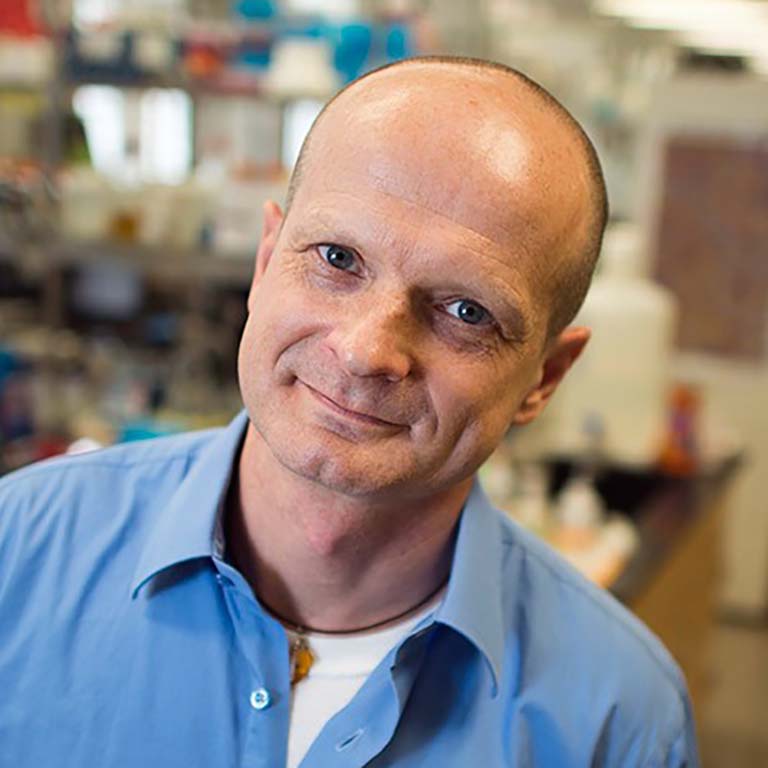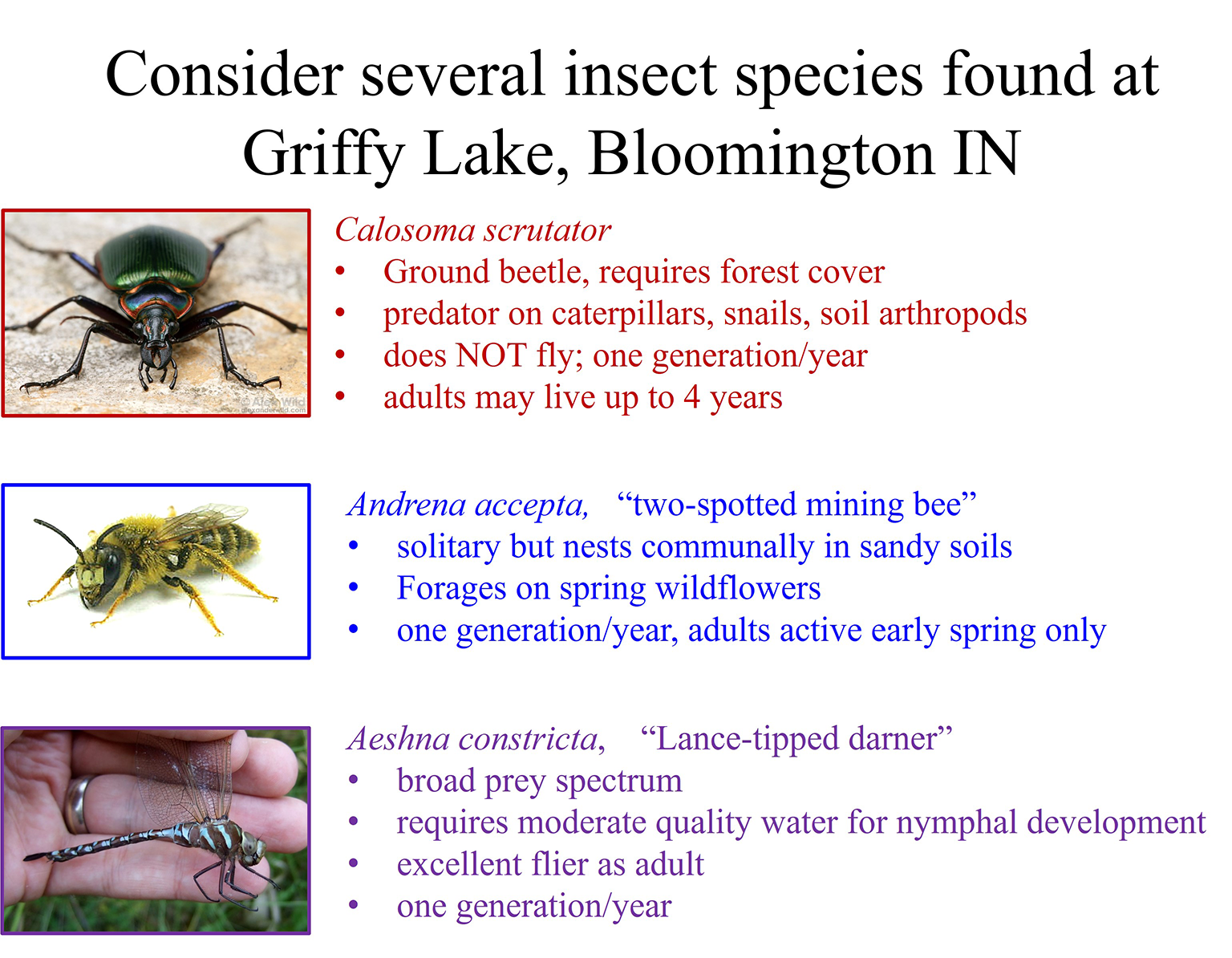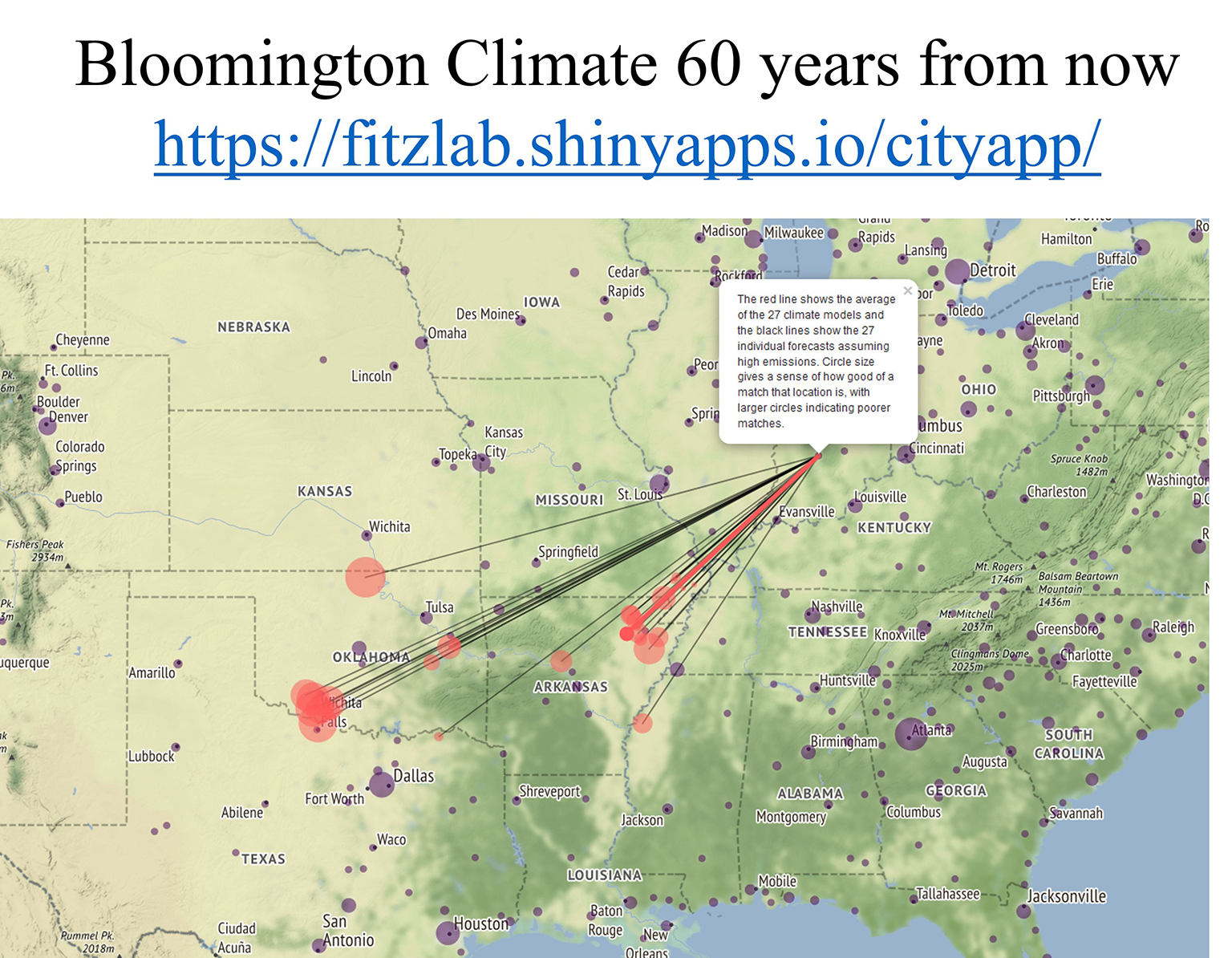“What teachers need is something that is simultaneously locally relevant and globally applicable,” he said. “Our module tries to do that.”
Across three lessons, the new module broadly explores climate change through various lenses. The first activity asks students to discover the theory of island biogeography, a framework that looks at the role habitat size, connectivity, and location in relation to other habitats plays in biodiversity. The second examines why the eastern U.S. has much higher plant diversity than Europe despite sharing a similar climate. Finally, the third lesson zeroes in on the three insect species at Griffy Lake and the challenges they will face to survive the next 60 years of climate change. Besides Milks’ classroom, Moczek also tested the module in his own course on insect biology at the IU Bloomington campus.
For Milks, a key part of the module’s effectiveness is how students relate to it.
“I think it’s really engaging for students to be able to bring these big issues to their local community and see that their knowledge is applicable,” she said. “So much of what I think we need to do in high school is constantly connect the learning that students are asked to do to their lives in meaningful ways.”
Giving students the confidence to participate in science was another major goal of the curriculum, Moczek said.
“I want them to exercise their scientific skills and realize that while science is often hard and requires critical thinking and thought, it’s not magic. You don’t have to be a wizard in Slytherin to do that kind of stuff,” he said.
Ultimately, though, the module seeks to tackle the massive problem of climate change in a way that helps students realistically see the roles they can play in preserving local environments.
“Especially for young learners, especially now, the problem of climate change feels overwhelming, and so it’s very hard for students to engage meaningfully,” Milks said. “This framework makes it clear that there are things that can be done to help.”
The module will be presented in several more middle school, high school, and college classrooms during the 2022-2023 school year. Moczek said he ultimately hopes to present the curriculum at the National Association for Biology Teachers conference and adapt it for use all over the country.
“It demonstrates the awesome potential for even small collaborations like ours to make a contribution that goes beyond one school, one classroom, or one college,” he said.




 The College of Arts
The College of Arts